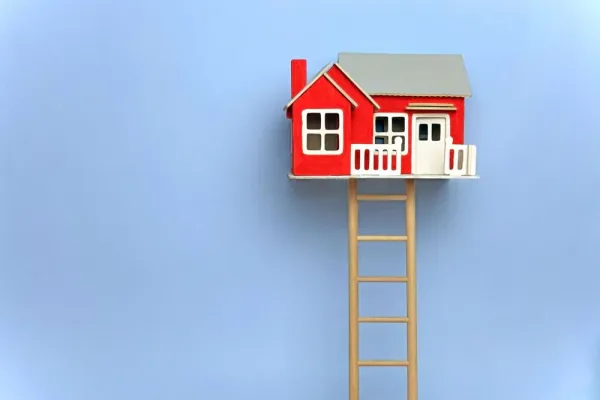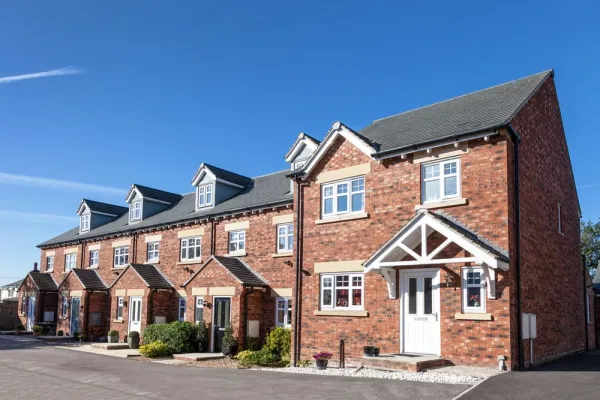The number of bedrooms a property has significantly affects its value.
If you find yourself in this position, it can be very helpful to know how the bedrooms in your house compare to others.
For example, what is the average number of bedrooms in a house across the UK? And how does this vary by each UK region?
We’ve answered both these questions, and more, in the blog below.
The average number of bedrooms in a House (UK)
Data from Statista found that a typical property in the UK has 2.95 bedrooms.
However, a closer look at the figures shows that the average number of bedrooms is linked to the type of property in question.
- Detached houses have around 4 bedrooms on average. A semi-detached property usually has 3 bedrooms
- Terraced houses usually have 2 to 3 bedrooms
- Flats average between 1 and 2 bedrooms.
Location
The typical number of bedrooms varies based on your location in the country.
Data from the Office of National Statistics shows that Chelsea, Richmond and Hammersmith are amongst the top three areas with the least number of bedrooms.
This is expected to be because of the limited space in these locations, meaning that a higher percentage of properties is flats.
Bedroom number vs livable space
Remember that the average number of bedrooms does not necessarily correlate to ‘liveable space’.
Some properties with 2 bedrooms have enormous sized bedrooms, while others with 5 have lots of tiny ones.
How large is the average bedroom in the UK?
It depends on the type of bedroom. There are three main types:
- Single bedroom: A typical single bedroom is 8 square metres (around 86 square feet)
- Double bedroom: The average double bedroom is 12.5 square metres (approximately 135 square feet)
- Master bedroom: An average master bedroom in the UK is 13 square metres (roughly 140 square feet).
What is the minimum size a bedroom must be?
There are legal requirements for the minimum size of a bedroom. These are stated in the Housing Act 1985.
A room must be at least 4.64 square metres – otherwise, it’s not legally recognised as a bedroom.
And the ceiling must be at least 2.3 meters (7.5 feet).
Do older properties usually have more or fewer bedrooms?
A typical older property is much larger than the houses built today. This is because there was more space available.
Developers were less concerned about fitting everything into a small area for maximum ROI (return on investment).
As a result, the average bedroom in a house built before 1960 is larger than modern bedrooms. And these properties usually have a higher number of bedrooms and higher ceilings, too.
(Read here to find out how old your property is.)
Do new build properties usually have more or fewer bedrooms?
The number of bedrooms in new build properties has decreased over recent years.
Between the 1930s and the 1980s, the number of bedrooms went anywhere up to 3.63 per property on average.
But today, this has fallen to 2.95 bedrooms per house on average.
What’s the average number of bedrooms in Scotland, Wales and Northern Ireland?
The median number of bedrooms in a property in Scotland is 4.
In Wales, this number is 3, as it is in Northern Ireland, too.
How does the UK compare to other countries in number of bedrooms?
In the UK, the country with the highest average number of bedrooms is Scotland. England has the fewest on average.
In 2023, Luxembourg, Malta, and Belgium had the highest number of rooms per person in Europe.
And the average room sizes in the UK are smaller than almost all other European countries.
Some data suggests that the number of bedrooms was higher when housing associations and local councils built more properties in the UK.
Do more bedrooms increase the value of a house?
Yes. Properties with more bedrooms are considered more valuable, and you can sell for a higher figure.
This is because more people can live there. It’s ideal for large families or if you plan to have more children. These extra bedrooms can be used for storage spaces, too.
According to Nationwide, adding space to create an additional double bedroom can add around 14% to the value of an existing two bedroom house.
While other sources suggest that each extra bedroom adds 15% onto the value of your property.
You should get a personalised quotation from a property expert, and/or contractor, for guidance specific to your situation.
















